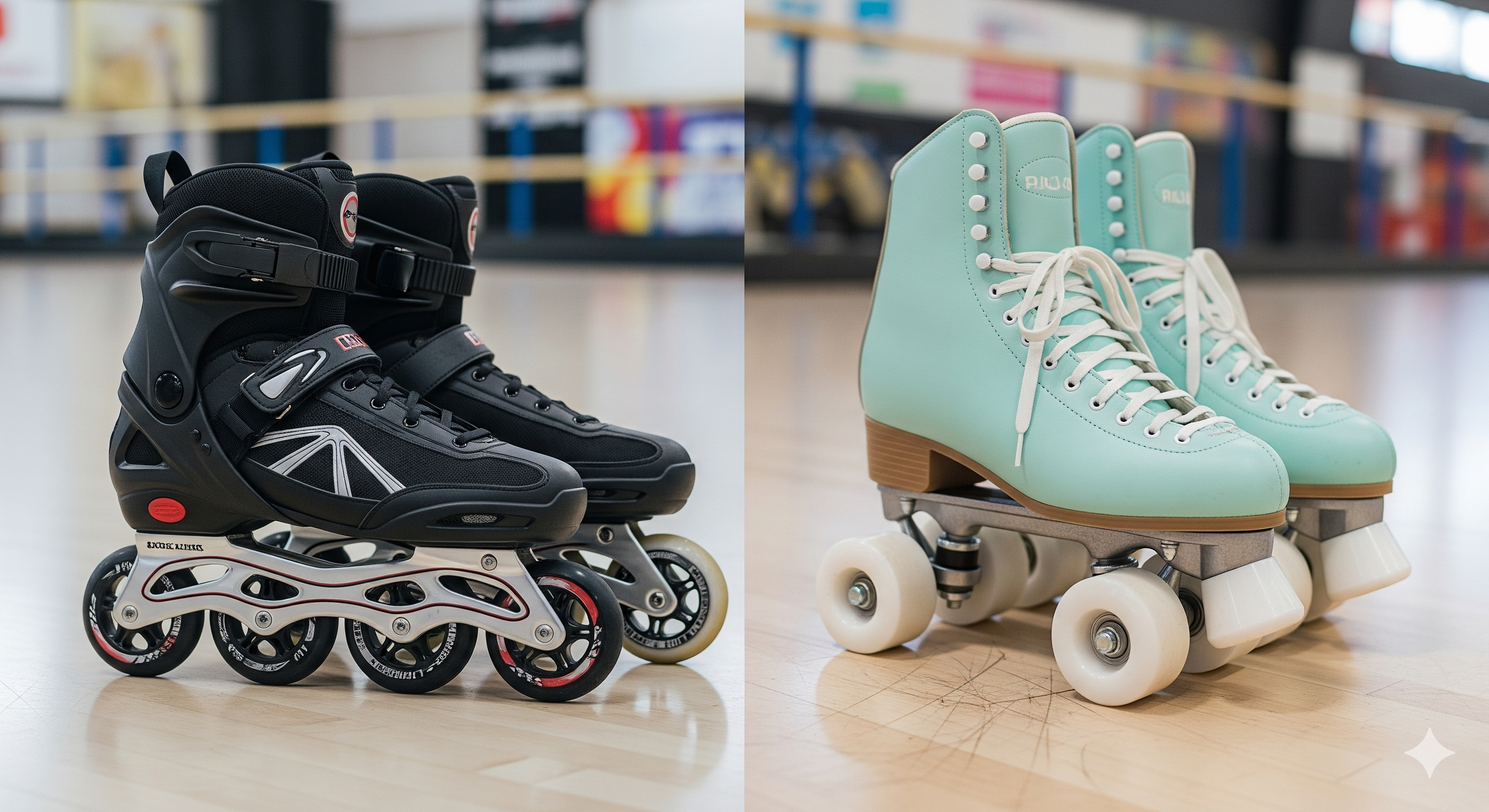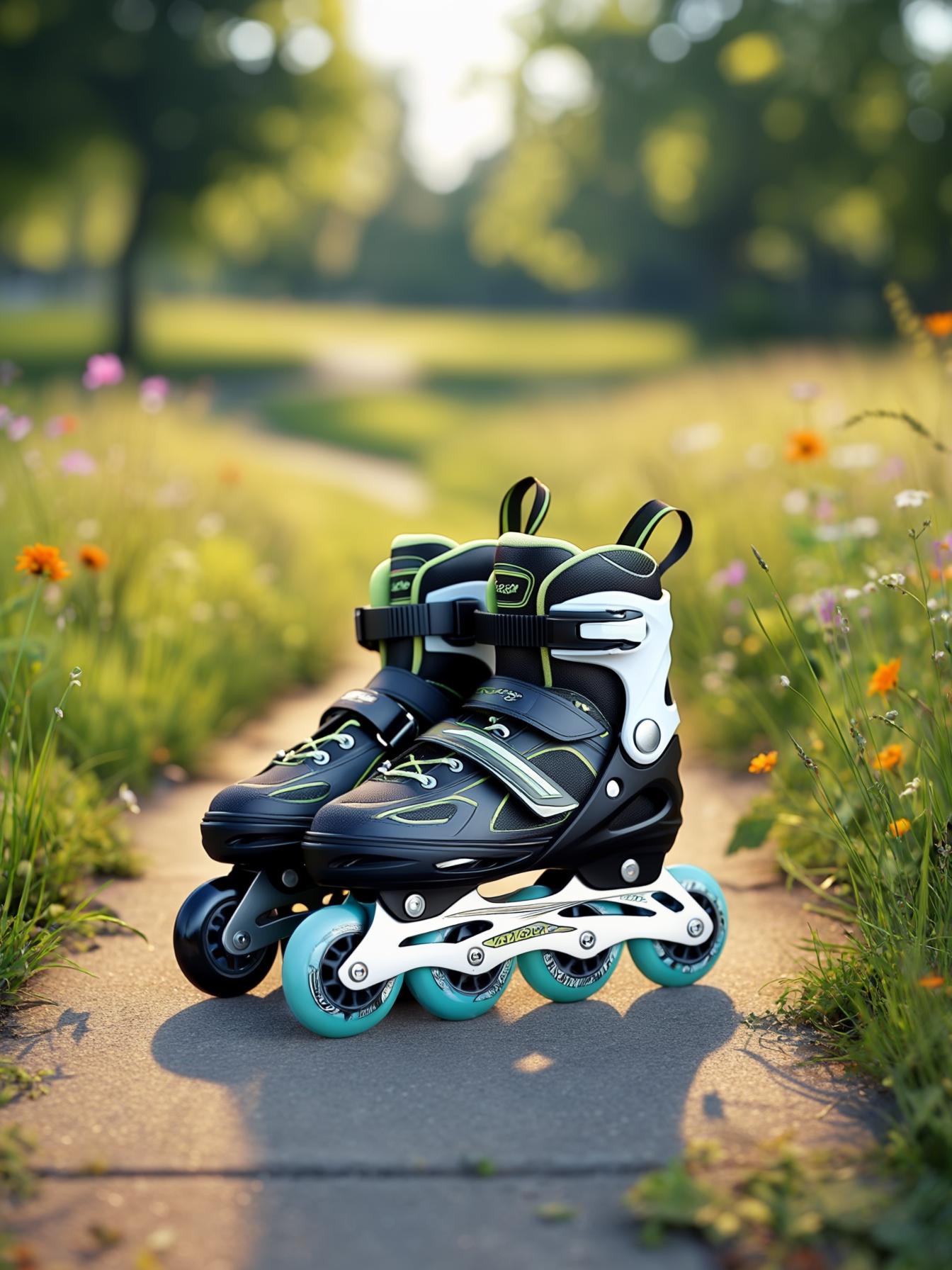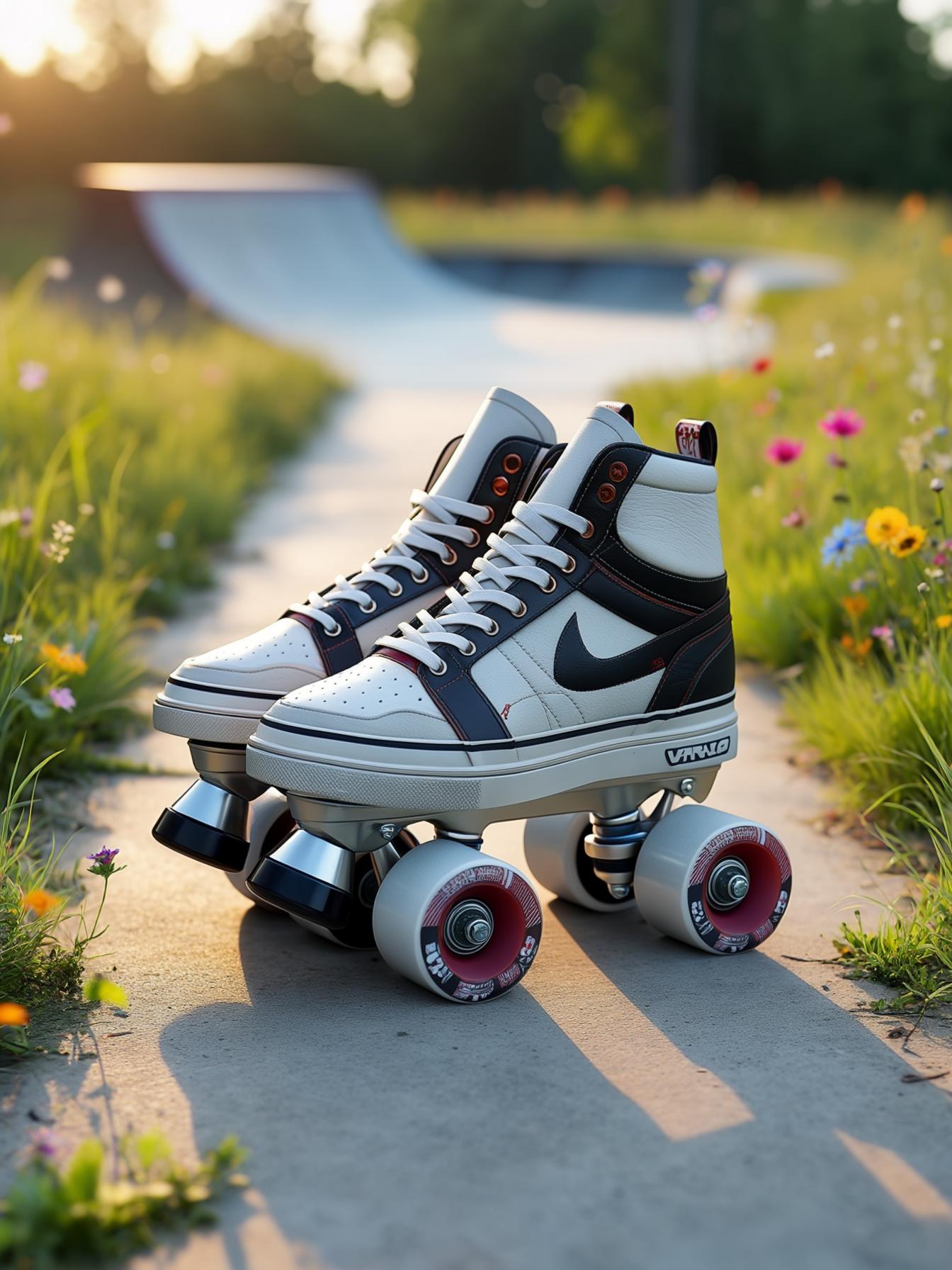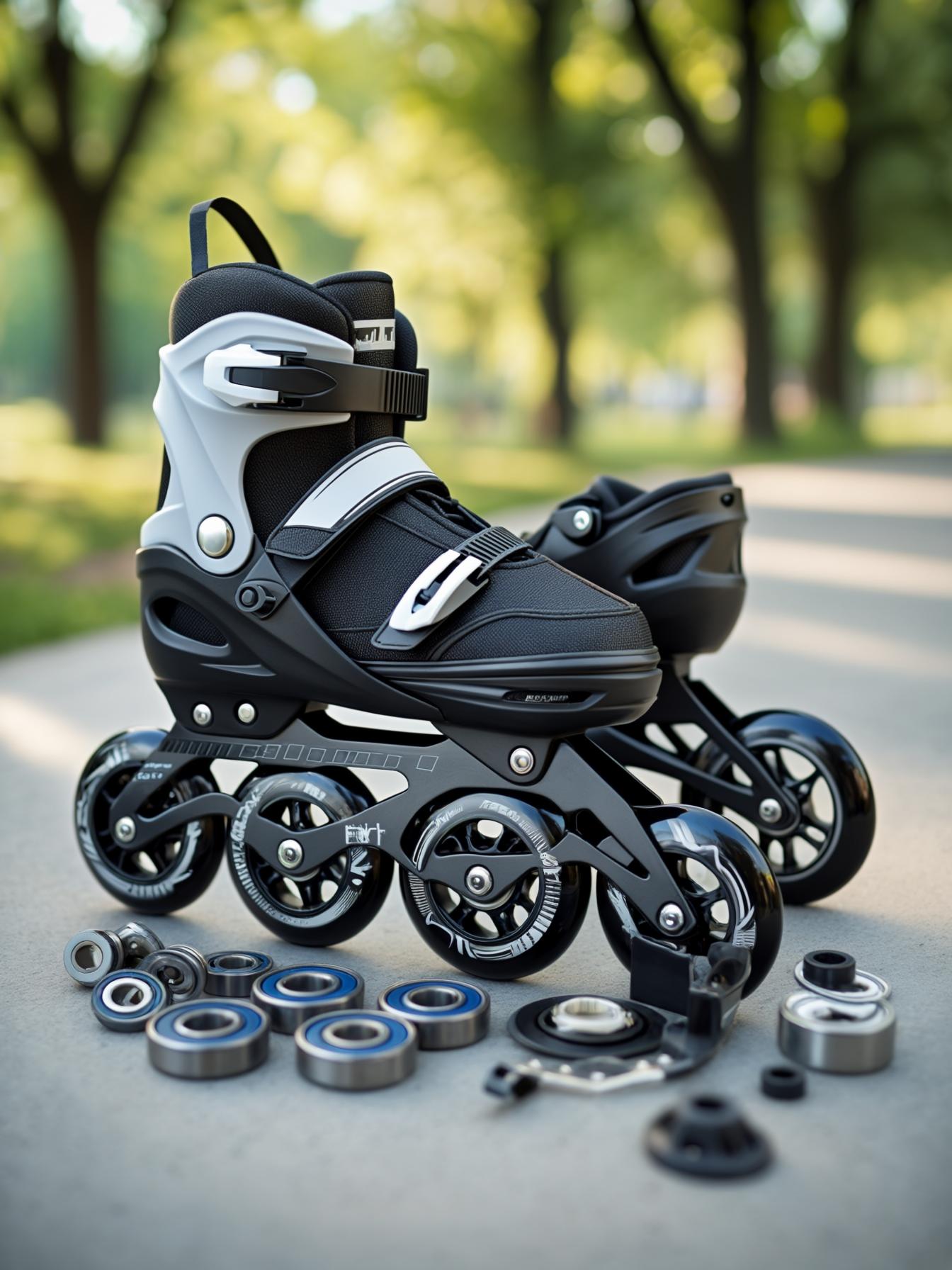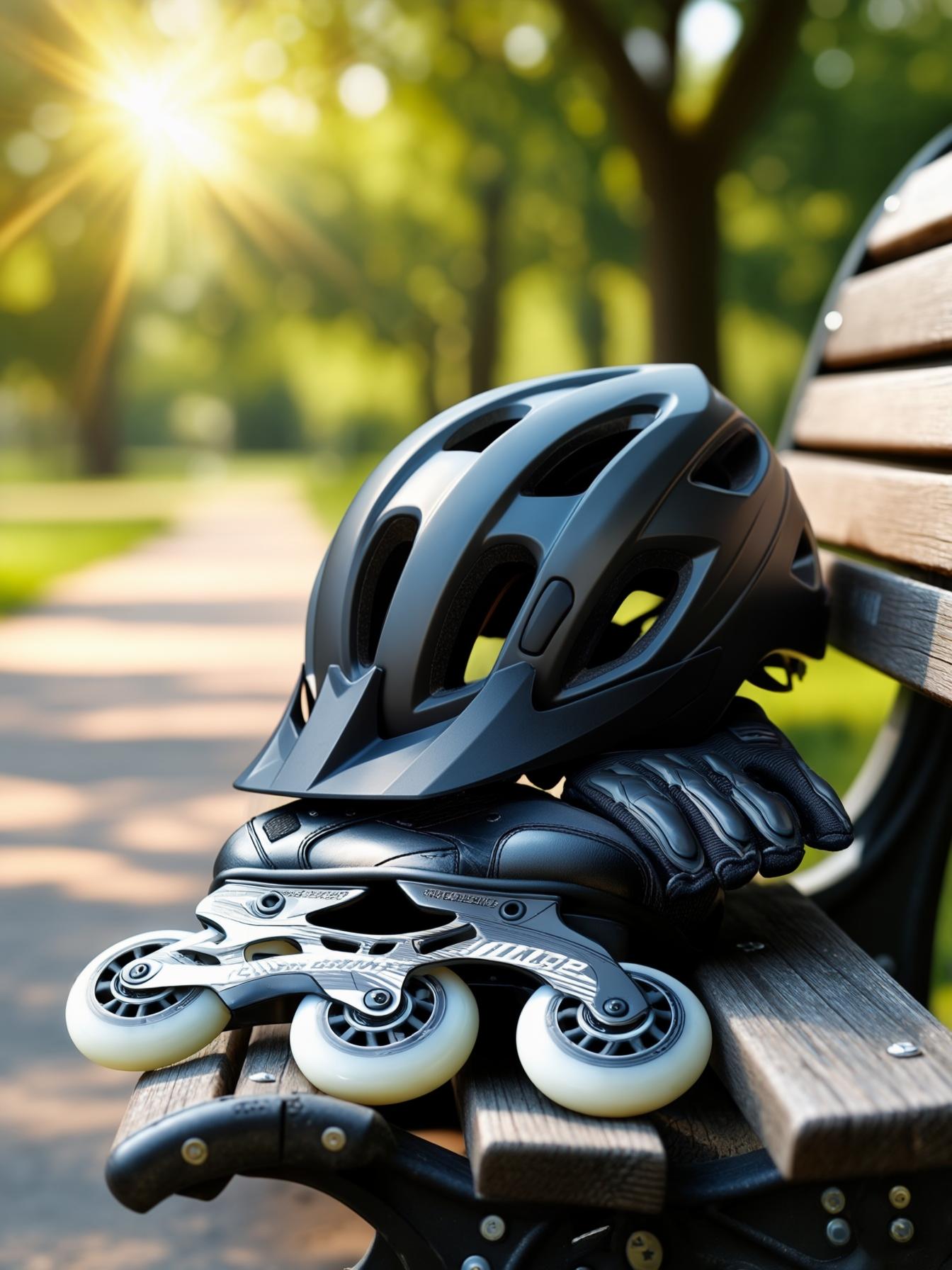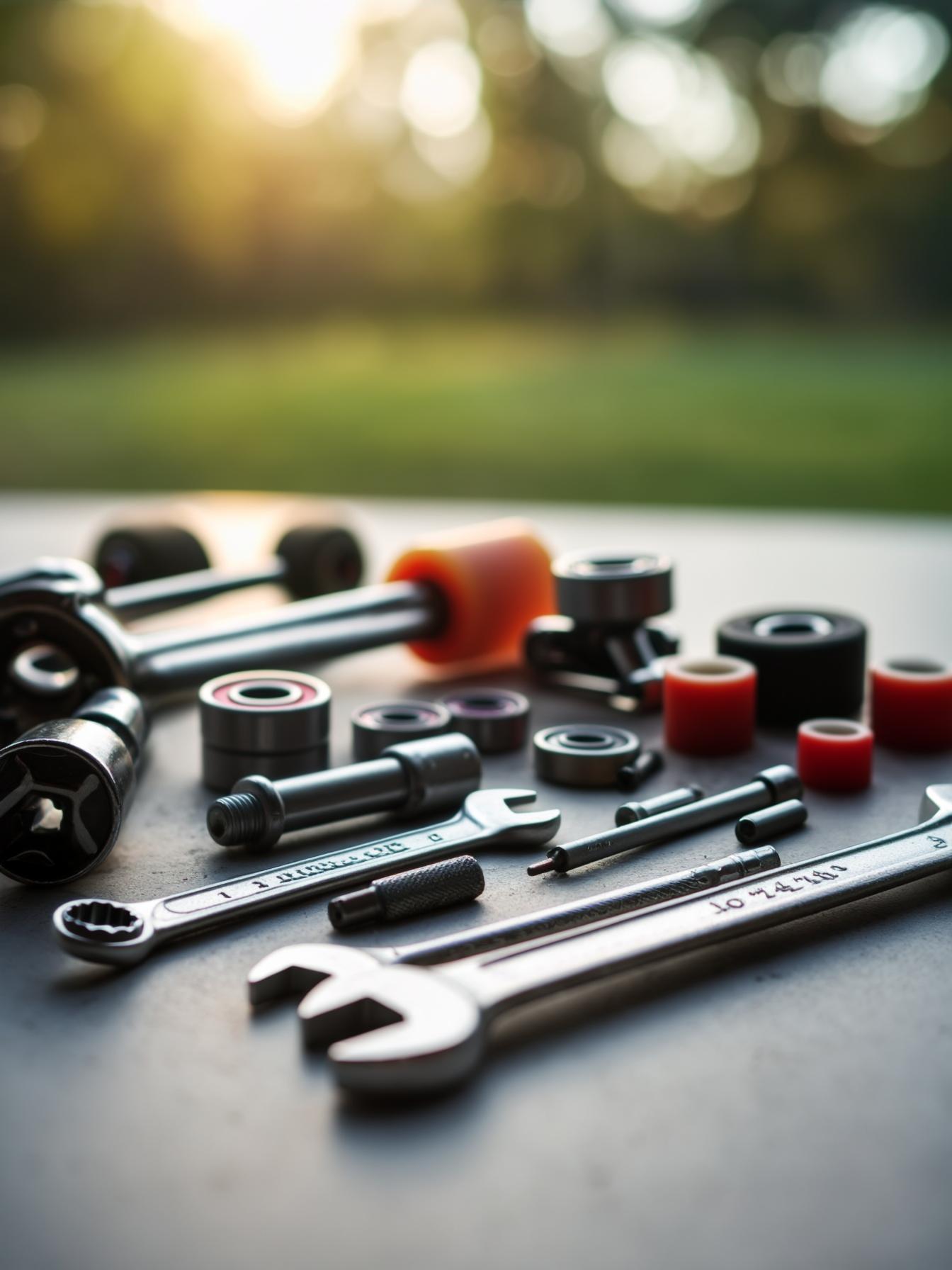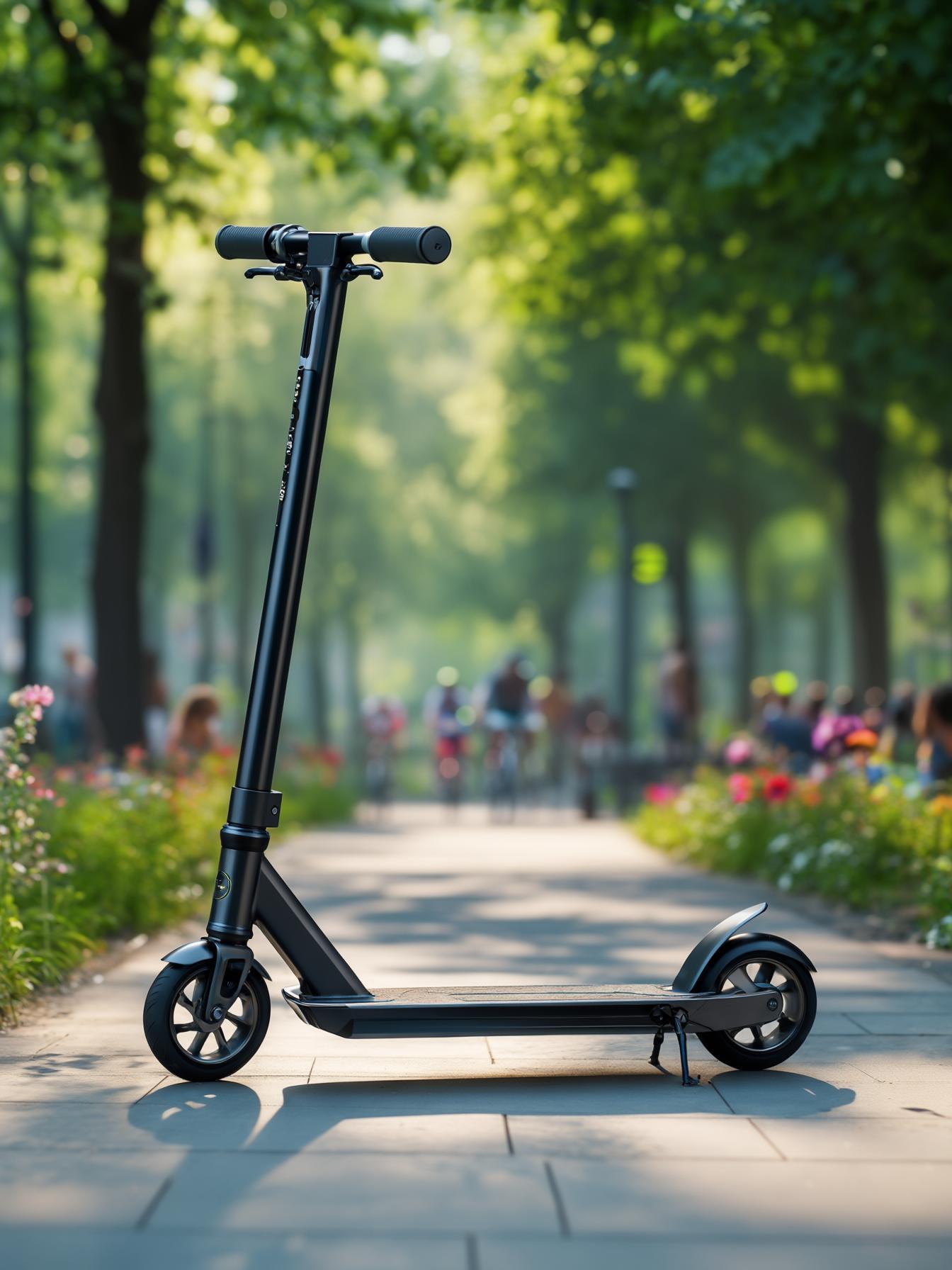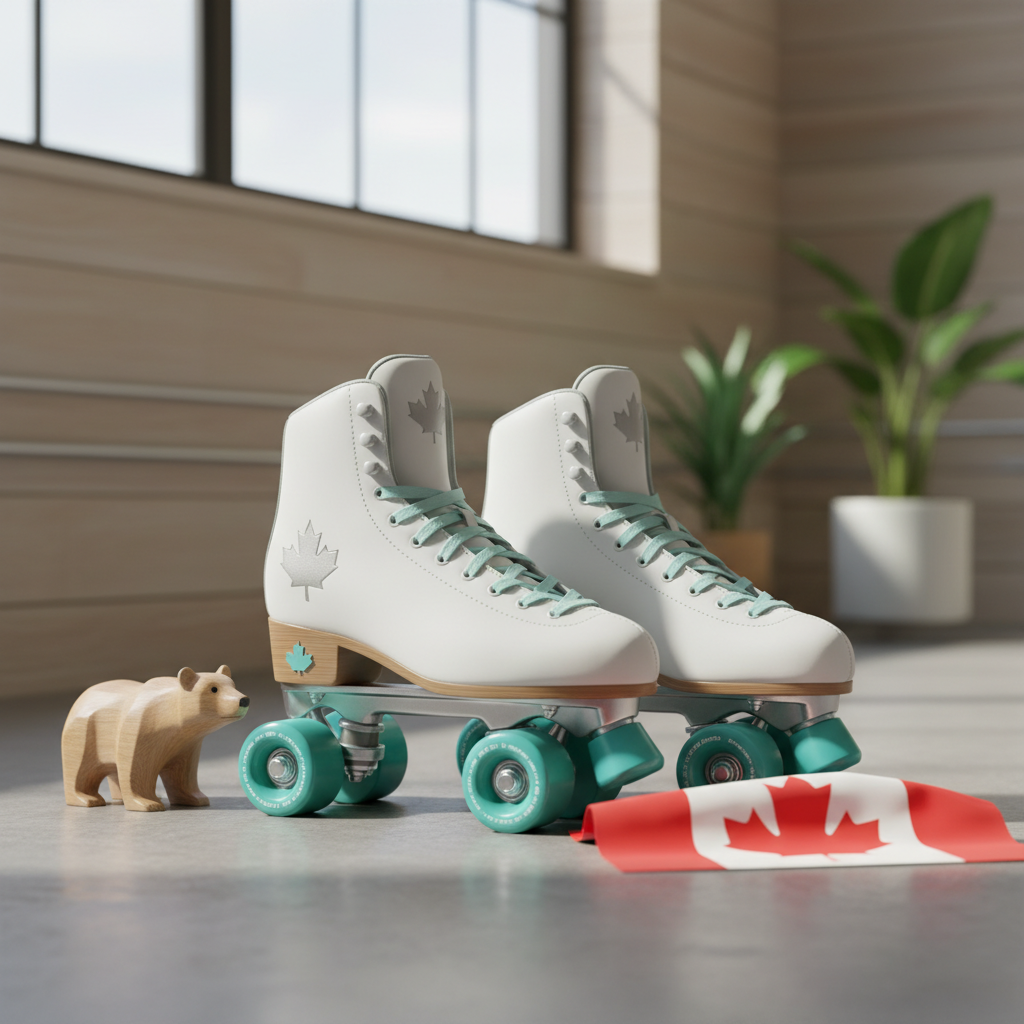Inline Skates vs Roller Skates: Complete 2025 Comparison Guide for Canadian Skaters
Choosing between inline skates and roller skates can feel overwhelming, especially with so many excellent options available in Canada today. Whether you're exploring Toronto's Martin Goodman Trail or hitting indoor rinks across Ontario, the type of skates you choose dramatically impacts your skating experience. This comprehensive guide breaks down everything Canadian skaters need to know to make the perfect choice.
Quick Answer: Which Should You Choose?
Choose Inline Skates if you want:
- Speed and distance skating
- Fitness and cardio workouts
- Urban commuting in Canadian cities
- Smooth, efficient rolling on trails
Choose Roller Skates (Quad Skates) if you want:
- Dance and artistic skating
- Better stability for beginners
- Retro style and cultural appeal
- Indoor rink and derby skating
What's the Difference: Inline vs Roller Skates
Inline Skates (Rollerblades)
Inline skates feature wheels arranged in a single line, mimicking the blade of an ice skate. This design originated from hockey players' off-season training needs, making them naturally suited for speed and distance.
Wheel Configuration: 3-5 wheels in a straight line Best for: Speed, fitness, long-distance skating, urban transportation
Roller Skates (Quad Skates)
Roller skates have four wheels arranged in a rectangular pattern - two in front, two in back. This traditional design has been popular since the 1800s and experienced a major revival in recent years.
Wheel Configuration: 4 wheels in a 2x2 pattern Best for: Dancing, tricks, artistic skating, stability, derby
Performance Comparison
Speed and Efficiency
Winner: Inline Skates
Inline skates clearly win for speed and efficiency:
- Larger wheels (typically 80-110mm) cover more ground per revolution
- Streamlined design reduces air resistance
- Longer wheelbase maintains momentum better
- Perfect for Toronto's long trails like the Waterfront Trail
Real-world example: On Toronto's 56km Martin Goodman Trail, inline skaters typically complete the full distance 30-40% faster than quad skaters.
Stability and Balance
Winner: Roller Skates
Quad skates offer superior stability, especially for beginners:
- Wider wheelbase provides a more stable platform
- Lower center of gravity makes balance easier
- Independent front/back control allows for quick corrections
- Ideal for learning in Toronto's indoor rinks
Maneuverability and Tricks
Winner: Roller Skates
For tight turns, dance moves, and artistic skating:
- Shorter wheelbase enables tighter turning radius
- Independent toe stops for quick stops and pivots
- Better for backward skating and dance moves
- Superior for artistic expression and roller derby
Hill and Terrain Handling
Winner: Inline Skates
On Toronto's varied terrain and Canadian landscapes:
- Better uphill performance due to efficient power transfer
- Superior downhill control with larger wheels and braking systems
- Handle rough surfaces better with shock-absorbing larger wheels
- More versatile on different Canadian road conditions
Comfort and Fit Comparison
Learning Curve
Easier to Learn: Roller Skates
- New skaters often find quad skates more intuitive
- Wider stance feels more natural
- Easier to stop (toe stop method)
- Less intimidating for absolute beginners
Faster Progression: Inline Skates
- Similar to ice skating motion (familiar to Canadian skaters)
- Once balanced, natural forward motion
- Transferable skills to other sports
- Better long-term skill development
Ankle Support
Variable by Model Type:
Both inline and roller skates offer excellent ankle support in quality models:
- High-top designs available in both styles
- Professional models provide superior support
- Recreational models may vary significantly
- Proper fit is crucial regardless of style
Comfort for Long Sessions
Winner: Depends on Use
- Inline skates: Better for distance skating, less foot fatigue on long Canadian trails
- Roller skates: More comfortable for stop-and-go activities, dancing, trick practice
Cost Analysis for Canadian Skaters
Entry-Level Options ($150-300 CAD)
Inline Skates:
- Powerslide Doop Urban 100 Adjustable - Excellent adjustable option
- Basic recreational models available
- Good selection at Canadian retailers
Roller Skates:
- CHAYA Classic Dance Roller Skates - $224.99 CAD
- Quality entry-level options available
- Growing market in Canada
Mid-Range Performance ($300-500 CAD)
Inline Skates:
- FR UFR Street Diako Diaby Skates - $423.99 CAD
- Professional urban skating performance
- Excellent value for Canadian conditions
Roller Skates:
- CHAYA Miyu Pink Leopard - $270.99 CAD
- Premium materials and construction
- Perfect for style-conscious Canadian skaters
Professional Level ($500+ CAD)
Inline Skates:
- Mesmer Throne Levi van Rijn Pro - $539.99 CAD
- Competition-grade performance
- Built for serious Canadian athletes
Roller Skates:
- CHAYA Park Dark Soul - $537.99 CAD
- Professional-grade construction
- Designed for advanced performance
Total Cost of Ownership
Inline Skates typically cost more long-term:
- Wheels wear faster on one edge
- More complex brake systems to maintain
- Bearings need more frequent service
Roller Skates offer better value:
- Even wheel wear patterns
- Simpler maintenance requirements
- Longer-lasting components overall
Best Use Cases in Canada
Urban Transportation in Canadian Cities
Winner: Inline Skates
For commuting in Toronto, Vancouver, or other Canadian cities:
- Faster travel times
- Better handling of varied road surfaces
- More efficient on bike paths and trails
- Easier to navigate traffic (when legal)
Fitness and Exercise
Winner: Inline Skates
For cardiovascular fitness and training:
- Higher calorie burn rates
- Better for interval training
- Suitable for long-distance challenges
- More intensive workout potential
Social and Community Skating
Winner: Roller Skates
For Toronto's vibrant skating community:
- Better for rink sessions and meetups
- Ideal for dance and artistic expression
- Perfect for roller derby participation
- More approachable for group activities
Seasonal Considerations in Canada
Spring/Summer (April-September):
- Inline skates excel on Canada's extensive trail networks
- Perfect for outdoor fitness and exploration
- Handle Canada's varied terrain well
Fall/Winter (October-March):
- Roller skates dominate indoor rink scenes
- Better for community center activities
- Ideal for developing artistic skills during cold months
Maintenance and Durability
Wheel Replacement
Inline Skates:
- Need wheel rotation every 20-40 hours
- Replace wheels individually as they wear
- Harder wheels last longer on Canadian pavement
Roller Skates:
- More even wear patterns
- Replace in sets of 4
- Softer wheels may wear faster outdoors
Bearing Maintenance
Both require similar care:
- Clean and lubricate monthly
- Replace annually for recreational use
- Canadian winters require extra protection from salt and moisture
Frame and Boot Durability
Generally comparable:
- Quality models last years with proper care
- Canadian weather conditions require protective storage
- Professional models offer superior longevity
Safety Considerations for Canadian Skaters
Protective Gear Requirements
Both styles require:
- Helmet (mandatory in many Canadian jurisdictions)
- Knee and elbow pads
- Wrist guards
- Bright clothing for visibility
Braking Systems
Inline Skates:
- Heel brake (removable on advanced models)
- T-stop technique required for intermediate+ skaters
- Requires more practice to master
Roller Skates:
- Toe stops for immediate stopping
- More intuitive for beginners
- Better emergency stopping capability
Canadian Weather Considerations
Wet Conditions:
- Neither style should be used on wet surfaces
- Canada's frequent rain requires indoor alternatives
- Proper storage prevents rust and damage
Winter Storage:
- Both require climate-controlled storage
- Regular maintenance prevents cold-weather damage
- Professional tune-ups recommended annually
Making Your Decision: Decision Tree
Choose Inline Skates If:
✅ Your primary goals are:
- Fitness and cardiovascular exercise
- Speed and distance skating
- Urban transportation in Canadian cities
- Training for competitive skating
✅ Your skating locations are:
- Long trails like Toronto's Martin Goodman Trail
- Urban bike paths and recreational trails
- Outdoor fitness activities
- Commuting routes (where legal)
✅ Your skill level is:
- Intermediate to advanced (or willing to practice)
- Comfortable with learning curve
- Previous ice skating experience
- Goal-oriented fitness mindset
Choose Roller Skates If:
✅ Your primary goals are:
- Dance and artistic expression
- Social and community skating
- Roller derby participation
- Retro style and cultural connection
✅ Your skating locations are:
- Indoor rinks and community centers
- Smooth outdoor areas like basketball courts
- Social skating meetups
- Short-distance recreational areas
✅ Your skill level is:
- Beginner seeking stability
- Interested in tricks and artistic skating
- Prefer stop-and-go activities
- Social skating focus
Expert Recommendations by Canadian Region
Greater Toronto Area (GTA)
Best Overall Choice: Inline Skates
- Extensive trail network (600+ km of paths)
- Long-distance recreational opportunities
- Urban transportation potential
- Year-round indoor facilities available
Recommended Models:
- FR UFR Street Diako Diaby for urban skating
- Powerslide Doop Urban 100 for families
Vancouver and BC Lower Mainland
Best Overall Choice: Inline Skates
- Mild climate extends outdoor season
- Excellent seawall and trail networks
- Fitness-focused skating culture
- Mountain and coastal trail variety
Prairie Provinces (Alberta, Saskatchewan, Manitoba)
Best Overall Choice: Roller Skates
- Strong indoor rink culture
- Harsh winters favor indoor activities
- Growing roller derby communities
- Social skating emphasis
Maritime Provinces
Best Overall Choice: Inline Skates
- Scenic coastal trail networks
- Tourism and recreational focus
- Shorter outdoor season maximizes trail use
- Growing fitness skating community
Hybrid and Specialty Options
Convertible Systems
Some manufacturers offer convertible frames that allow switching between inline and quad setups:
- Higher initial cost but maximum versatility
- Ideal for skaters wanting to try both styles
- Good for families with multiple skating interests
Specialty Configurations
Tri-skates (3-wheel inline):
- Larger wheels (100-125mm) for maximum speed
- Growing popularity in Canada
- Best for advanced fitness skaters
Inline Derby Skates:
- Short-frame inline skates for derby play
- Combines quad maneuverability with inline benefits
- Niche but growing Canadian market
Canadian Shopping Considerations
Where to Buy in Canada
ProSkaters Place Canada offers the most comprehensive selection:
- Expert fitting services at our Toronto location
- Fast Canadian shipping coast-to-coast
- Professional maintenance and support
- Local knowledge of Canadian skating conditions
Import Duties and Pricing
Benefits of Shopping Canadian:
- No surprise import duties or border fees
- CAD pricing transparency
- Local warranty and service support
- Understanding of Canadian climate needs
Seasonal Shopping Strategy
Best Time to Buy:
- Fall (September-November): End-of-season sales, new model releases
- Spring (March-May): Fresh inventory, pre-season promotions
- Black Friday/Boxing Day: Significant discounts available
Common Myths Debunked
"Inline Skates Are Always Faster"
Partially True: While inline skates have higher top speeds, experienced quad skaters can be surprisingly fast on appropriate surfaces. The difference matters most for distance skating.
"Roller Skates Are Only for Beginners"
False: Professional roller derby, artistic skating, and speed quad skating require exceptional skill. Many inline skaters find quad skating challenging.
"You Can't Do Tricks on Inline Skates"
False: Aggressive inline skating and freestyle skating feature incredible trick progression. Both styles offer unique trick opportunities.
"Roller Skates Are Just a Trend"
False: Quad skating has been popular for over 150 years. The recent revival reflects genuine appreciation for the style's unique benefits.
Future Trends in Canadian Skating
Technology Developments
Both inline and roller skates are seeing innovations:
- Advanced bearing technologies
- Lighter, stronger frame materials
- Improved boot ventilation and comfort
- Smart connectivity features
Community Growth
Canadian skating communities are expanding:
- More municipal trail investments
- Growing indoor facility availability
- Increased youth and adult programs
- Enhanced safety infrastructure
Environmental Consciousness
Skating as eco-friendly transportation:
- Reduced carbon footprint vs. cars
- Growing acceptance in Canadian cities
- Integration with public transit systems
- Health and environmental benefits aligned
Take Our Interactive Quiz: Which Skate Style Is Right for You?
Question 1: What's your primary skating goal?
A) Fitness, speed, and distance skating B) Dance, artistic expression, and style C) Social skating and community involvement D) Casual recreation and family activities
Question 2: Where will you skate most often in Canada?
A) Long trails like Toronto's Martin Goodman Trail B) Indoor rinks and community centers C) Mixed indoor/outdoor recreational areas D) Urban streets and bike paths (where legal)
Question 3: What's your experience level?
A) Beginner wanting stability and easy learning B) Intermediate ready for a challenge C) Advanced skater wanting performance D) Experienced ice skater transitioning to wheels
Question 4: What's your budget range (CAD)?
A) Under $250 - Budget-conscious B) $250-400 - Mid-range quality C) $400-600 - Performance focus D) $600+ - Professional grade
Quiz Results:
Mostly A's: Roller Skates You'll love the stability, style, and social aspects of quad skating. Start with CHAYA Classic Dance Roller Skates.
Mostly B's: Inline Skates Your fitness and performance goals align perfectly with inline skating. Consider FR UFR Street Diako Diaby Skates.
Mostly C's: Either Style You're flexible and could enjoy both. Start with roller skates for easier learning, then consider inline skates for variety.
Mostly D's: Inline Skates Your experience and performance focus make inline skates ideal. Look at Mesmer Throne Levi van Rijn Pro.
Conclusion: Making the Right Choice for Your Canadian Skating Journey
The choice between inline skates and roller skates ultimately depends on your personal goals, skating environment, and style preferences. Both offer incredible opportunities for fitness, fun, and community in Canada's vibrant skating scene.
For most Canadian skaters, we recommend:
- Start with roller skates if you're a complete beginner, prioritize stability, or want to join indoor skating communities
- Choose inline skates if you have ice skating experience, want fitness benefits, or plan to use Canada's extensive trail networks
- Consider both eventually - many passionate skaters own both styles for different activities
Ready to Choose Your Perfect Skates?
Visit ProSkaters Place Canada to explore our complete selection of both inline and roller skates. Our expert fitting services ensure you get the perfect match for your Canadian skating adventures.
Still unsure? Our Toronto showroom offers try-before-you-buy experiences, and our knowledgeable staff can help you make the perfect choice based on your specific needs and local skating conditions.
Pro Tip: Start Your Journey Today
Remember, the best skates are the ones you'll actually use. Whether you choose inline or roller skates, the most important step is getting started. Toronto's skating community is welcoming, Canada's trails are waiting, and your skating adventure begins with that first roll.
Browse our complete skate collection or visit our Toronto location for expert consultation from Canada's skating specialists.
Frequently Asked Questions
Q: Can I learn both inline and roller skating? A: Absolutely! Many Canadian skaters enjoy both styles. The skills are transferable, and each offers unique benefits for different activities.
Q: Which is better for Canadian winters? A: Both are primarily indoor activities during Canadian winters. Roller skates have a slight edge for indoor rink activities and community center programs.
Q: Are inline skates harder to learn than roller skates? A: Inline skates have a steeper initial learning curve, but many skaters progress faster once they master the basics. Roller skates offer easier initial balance.
Q: Which style is more popular in Canada? A: Both are growing rapidly. Inline skating dominates fitness and trail skating, while roller skating leads in artistic, social, and derby communities.
Q: Can I convert between inline and roller skate setups? A: Some advanced skate systems offer convertible frames, but most skaters choose one style and stick with it based on their primary activities.
Q: Which offers better exercise benefits? A: Both provide excellent cardiovascular exercise. Inline skating typically burns more calories due to higher speeds and longer sessions, while roller skating offers better balance and agility training.
